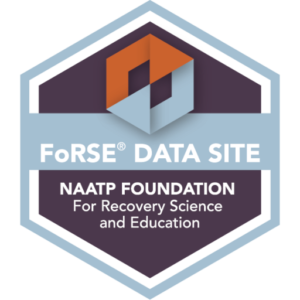The journey to recovery from addiction is a challenging one, but it becomes more manageable with the support of loved ones. Family plays a crucial role in the success of an individual’s recovery, providing emotional, psychological, and practical support throughout the rehabilitation process. In Alabama drug rehab centers, the involvement of family members is not just encouraged; it is often seen as a key component of effective treatment. This blog will explore the importance of family in the recovery process, the ways families can support their loved ones, and the role that family therapy plays in achieving long-term sobriety.
Understanding the Impact of Family Support in Rehab
Family involvement in Alabama drug rehab has been shown to significantly improve treatment outcomes. When family members actively participate in the recovery process, patients often feel more motivated to stay committed to their treatment. The emotional and psychological benefits of family support cannot be overstated; knowing that loved ones are invested in their recovery journey can provide individuals with the strength and determination needed to overcome the challenges of rehab.
Family support also helps to create a sense of accountability. When individuals know that their progress is being monitored and celebrated by their family, they are more likely to adhere to their treatment plan and resist the temptation to relapse. The emotional bond shared between family members can be a powerful motivator, encouraging individuals to persevere even when the recovery process becomes difficult.
Ways Families Can Support Loved Ones in Rehab
There are several ways that families can support their loved ones during their time in Alabama drug rehab. One of the most important forms of support is encouraging participation in treatment and therapy. This means not only urging the individual to attend all scheduled sessions but also showing a genuine interest in their progress. Families can play a crucial role by reinforcing the importance of therapy and celebrating milestones along the way.
Providing a stable and supportive home environment is another critical aspect of family involvement. A home that is free from stress, conflict, and negative influences can significantly contribute to the success of rehab. Families should strive to create a safe space where their loved one can focus on recovery without distractions or temptations.
Open and positive communication is also essential. Families should make an effort to maintain open lines of communication throughout the rehab process, offering encouragement and understanding. It’s important to listen without judgment and to express support rather than criticism. Positive communication helps to build trust and strengthens the bond between the individuals in rehab and their family members.

Family Therapy as a Key Component of Rehab
Family therapy is a vital part of the rehabilitation process in many Alabama drug rehab centers. These therapy sessions provide a structured environment where family members can work through underlying issues that may have contributed to the individual’s addiction. Family therapy helps to improve communication, resolve conflicts, and rebuild trust, all of which are crucial for a successful recovery.
During family therapy, therapists guide families through discussions that address past hurts, misunderstandings, and patterns of behavior that may have contributed to the addiction. By working through these issues together, families can learn to support each other in healthier ways, creating a more positive dynamic that benefits everyone involved.
Family therapy also empowers families with the tools they need to support their loved one’s recovery after rehab. This includes strategies for managing stress, setting boundaries, and preventing relapse. By participating in family therapy, families can become an active part of the recovery process, helping to create an environment that fosters long-term sobriety.
The Role of Family in Preventing Relapse
The role of family doesn’t end when a loved one completes their treatment program; ongoing family support is essential for maintaining sobriety after rehab. Alabama drug rehab centers often emphasize the importance of relapse prevention, and families play a critical role in this aspect of recovery. Continuous support from family members can help individuals stay on track and avoid triggers that could lead to relapse.
Families can help by being vigilant about potential triggers and offering support when their loved one faces challenging situations. This might involve helping the individual develop coping strategies, offering a listening ear when they need to talk, or simply being there to provide encouragement during difficult times. The support of family can be a stabilizing force, helping to keep the individual focused on their recovery goals.
It’s also important for families to educate themselves about the recovery process and to stay involved in their loved one’s ongoing care. By understanding the challenges that come with sobriety, families can better anticipate the needs of their loved one and provide the appropriate support.
Challenges Families May Face During Rehab
Supporting a loved one through rehab can be challenging for families. Common obstacles include managing the emotional toll of seeing a loved one struggle with addiction, dealing with feelings of guilt or blame, and navigating the changes in family dynamics that often accompany the recovery process. These challenges can be difficult, but they are not insurmountable.
One of the most important things families can do is practice self-care. Supporting someone in rehab requires a lot of emotional energy, and it’s important for family members to take care of their own well-being. This might mean seeking counseling for themselves, joining a support group for families of individuals in rehab, or simply making time for activities that help them recharge.
It’s also essential for families to recognize that recovery is a process that takes time. Setbacks are a natural part of this process, and it’s important to remain patient and supportive, even when things don’t go as smoothly as hoped. By staying committed to their loved one’s recovery, families can help ensure long-term success.
How Our Alabama Drug Rehab Involves Families
At Longleaf Recovery & Wellness in Birmingham, AL, we understand the vital role that family plays in the recovery process. Our Alabama drug rehab center offers a variety of programs and resources designed to involve families in treatment. From family therapy sessions to educational workshops, we provide families with the tools they need to support their loved one’s recovery.
Our family-inclusive treatment plans are tailored to meet the unique needs of each family, ensuring that every member has the opportunity to participate in the recovery process. We believe that when families work together, the chances of a successful recovery are significantly increased.
Encouraging Family Participation in Rehab
Motivating family members to get involved in the rehab process is crucial for success. Addressing any concerns or misconceptions about family involvement can help alleviate fears and encourage participation. It’s important to communicate the benefits of family involvement clearly and to provide reassurance that their support will make a meaningful difference.
At Longleaf Recovery & Wellness, we strive to create an environment where families feel welcomed and valued. We encourage open communication and provide the resources needed to help families support their loved ones effectively.
Contact Our Team Today
The role of family in Alabama drug rehab is essential for achieving lasting recovery. By providing emotional support, participating in therapy, and helping to prevent relapse, families can make a significant impact on their loved one’s journey to sobriety. If you or a loved one are considering rehab, we invite you to contact our team at Longleaf Recovery & Wellness in Birmingham, AL, by calling (888) 378-7933. We are here to support both individuals and their families through every step of the recovery process.





Comments are closed.